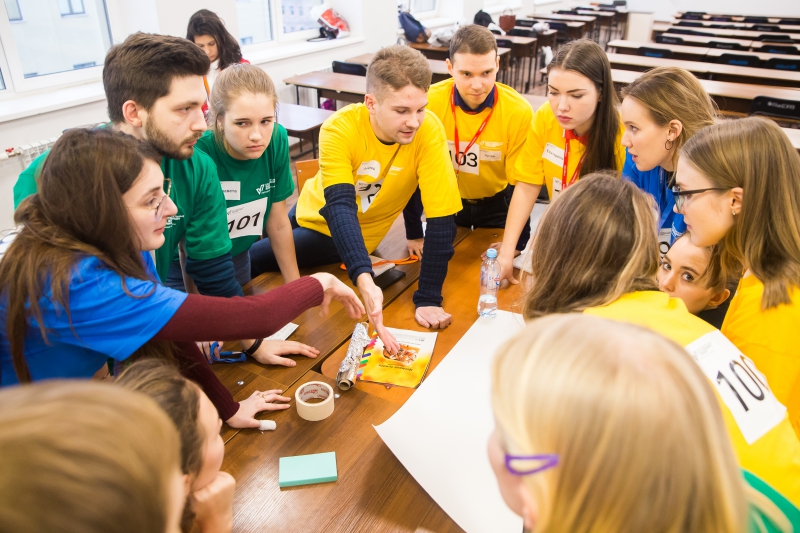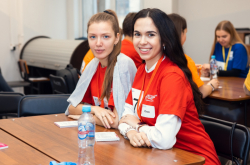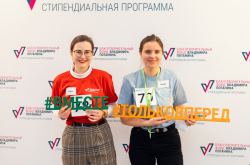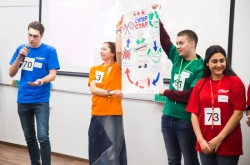Roman Evstigneev, first-year Master’s student, Faculty of Technological Management and Innovations
I first heard about the Potanin scholarship only half a year ago. I’d been aware that similar programs and contests existed before, but didn’t pay that much attention. I realize now that this wasn’t my best idea.
The contest was carried out in two rounds. This year, the competition in the first stage was between the applications we submitted, including four or five essays on our plans for the future, the topic of our thesis, plus motivation and leadership. I wrote them meticulously, over the course of a long period of time, consulting with my parents and friends. Once I finished, it dawned on me that these essays helped me understand a great deal of things about myself, my values and goals.
I’m writing a thesis on the development of a system for machine learning-based predictive analytics of the stock market. In my essay I chose not to focus on technical aspects of my work; rather, I spoke about my ambition to develop my own projects, to assemble a great team, to better myself and the world around me.
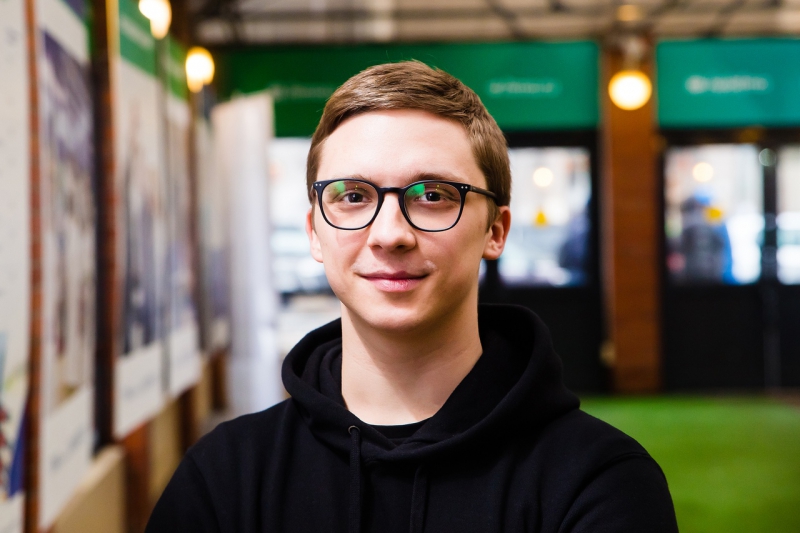
The second stage took place in the format of business games. By that point, I already was a seasoned participant of business games, including as part of competing for other scholarships, but for the most part these experiences were far from enjoyable. I expected everything to be the same here, but I was pleasantly surprised. Many think that the second stage aims to test your leadership skills, your ability to lead people. I didn’t find this to be true: the games were all very unlike one another, evidently aiming to evaluate different qualities and skills, from our erudition and emotional intelligence to public speaking skills and the ability to organize teamwork.
Most of all I enjoyed the contest on analyzing literary works. It revealed a lot about our personalities; it was clear that some of my fellow participants were trying to sell a version of their persona which wasn’t real. They were playing a part, hoping that the judges wouldn’t notice that, and it didn’t turn out well.
I plan to use the money I won for funding my possible semester exchange at the École Polytechnique Fédérale de Lausanne, Switzerland, which belongs to the top-50 of the world’s best universities.
My advice to everyone wanting to participate in the future Vladimir Potanin scholarship competition is, first, be yourself, and second, wear something eye-catching like a quirky bowtie, so that you would stand out from the rest and the judges would remember you more easily. For example, I sported brightly colored sneakers and flashy socks.
Anastasia Komarova, second-year Master’s student, Institute of International Development and Partnership
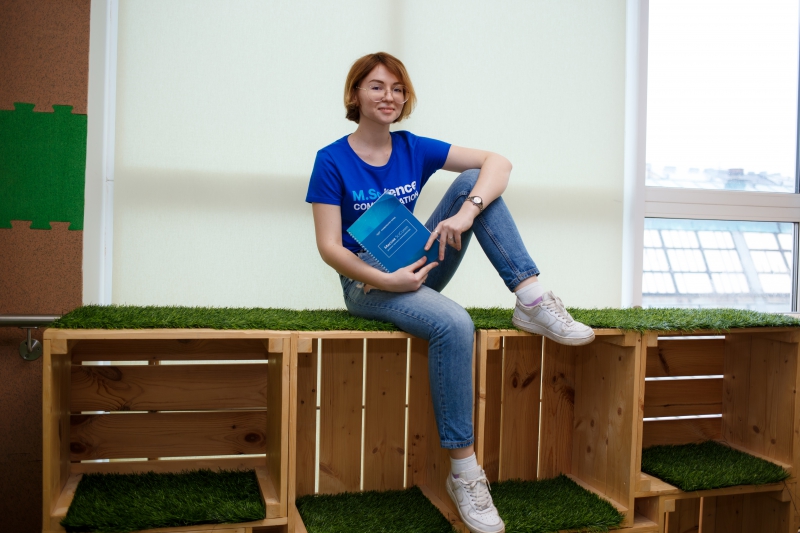
I learned about this contest from the heads of my Master’s program: they’d cooperated with the Vladimir Potanin Foundation as part of the competition, with some students of the last intake even succeeding in winning the scholarship. It was they who advised me and my groupmates to try it out for ourselves. I had no luck in winning the onsite round from the first go, but my second attempt was successful. There were two reasons nurturing my persistence; first, I needed the scholarship for supporting my imminent study exchange to Germany, second, I wanted to see what I’m capable of, to try my hand at something completely new.
My thesis is dedicated to environmental awareness building in Russia’s natural parks and reserves. Sustainable natural resource management and popularization of ecological knowledge is a matter of great urgency, and one that gets a lot of media coverage. The global climate changes; every day we hear about a new environmental problem and yet another species about to go extinct. Trying to push the solution from the top down proves to be ineffective; we have to start by explaining people the root of these issues and how that solution would work. Natural parks and reserves serve as ideal platform for conducting this much-needed work, especially given that they’re bound by the law to do so. I want to get to the bottom of whether and how they manage this task, what goals they pursue and what difficulties encounter. I hope that such a comprehensive overview of this field will help find and eliminate the blind spots in how environmental awareness is being built.
The onsite round consisted of several kinds of group and individual tasks. We had to participate in a debate on the MMM, devise an art exhibition, guess a book based on an illustration, assemble a puzzle, create a class timetable for the university of the future, and, finally, solve a case on a social problem. The debate was one of the easiest tasks for me as I participate in those very often, and so know the basic principles. Also, as I love literature, I really enjoyed the task about books, though it was a bit embarrassing that I didn’t guess that much. Case solving was the most difficult challenge I had to encounter; it was the last task of the day, we were all very tired but had to muster the strength that was left, come to an agreement, find and present the solution.
One part of my prize money will go to supporting my exchange in Germany, and the other to other educational purposes; I have a couple of skills in mind I want to work on, and the scholarship will come in handy in helping me achieve this goal.
I’d recommend all future participants to relax and try to enjoy the experience as much as possible. Personally, I don’t think that there’s some secret strategy that will guarantee your winning in both rounds. It’s more than enough to just be honest with others, and also to not be afraid to lose. Fear and excessive reserve will only inhibit you and make the competition more exhaustive that it needs to be. In reality, you can and should have fun and exchange ideas with other participants. Try to see them not as your competitors but as interesting, talented people you can learn from.
Mikhail Barsky, second-year Master’s student, Faculty of Software Engineering and Computer Systems
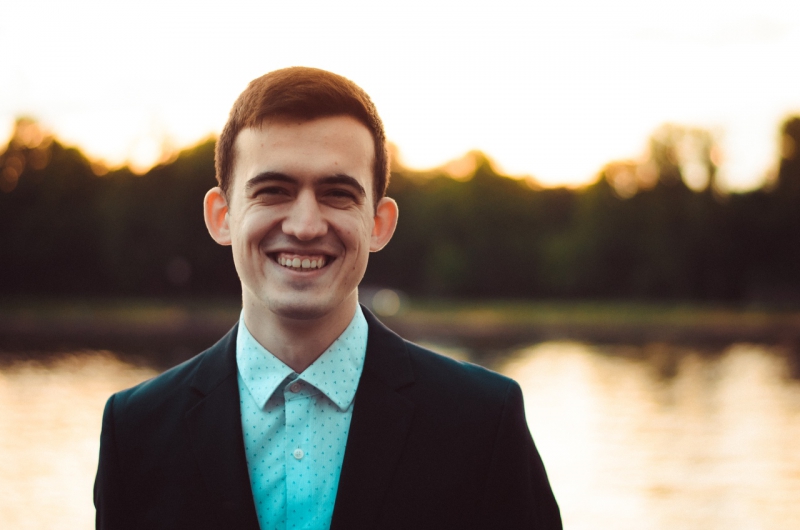
I came by an announcement about the Vladimir Potanin competition on the university’s notice board, and decided to give it a go. The first round was the one I feared the most: I’m not that great at writing long texts. I started my preparation two weeks before the deadline, sketching my plans for the next five years, and thinking how I’d explain how I demonstrate leadership in my daily life, what being a leader in my field means, and what I want to achieve in my thesis. I re-read and edited answers every single day, and asked my friends to evaluate my reasoning. This, I think, was what allowed me to go through to the second round.
As previously highlighted, the second round takes place in the form of business games, each lasting for 45 minutes with three to five minute breaks. Each participant had their itinerary sheet, so we were constantly switching teams and working with new people. All contests were unique, ranging from coming up with university subjects of the future which you had one minute to defend before the judges, to guessing book titles based on associative illustrations.
But what I loved the most were debates. We were divided into two teams, with one having to prove that Sergei Mavrodi, whose company MMM was responsible for one of the biggest Ponzi schemes of all time, was a genius businessman, and the other, who represented the state, to counter with the argument that all he was was a fraudster. The moderators peppered the discussion by adding different situations and roles for us to imagine ourselves into. The funniest one set the debate at a Harvard University student party. In the heat of the discussion, I even jumped on a chair, chin-chinned glasses of water with my teammates, and gave a tirade in English. You had to give it your all to succeed.
I’d advise future generations of participants to start preparing the answers long before the deadline, forfeit all inhibitions, summon all the pluck they have, and approach the competition as an opportunity to have fun.
Maria Danilyuk, first-year Master’s student, program “Industrial Ecology and Cleaner Production”
I learned about the Potanin scholarship thanks to ITMO.NEWS. I didn’t think much about it all at first, because I didn’t believe I could win. But a couple of days after, my academic supervisor sent me and other students a link to the contest with a postscript “You must give it a go!”. That’s when the bell rang that yes, I really must.
This year, the contest was made of two rounds: the first, online one with 6,800 students from all over Russia, and the second, onsite one, with 1,998 participants in the game. In the first round, we had to submit a motivation letter, a science-pop essay on the topic of our Master’s thesis, as well as two essays on leadership and our future plans. It was important to show how passionate you are about your Master’s topic, and give a cogent explanation why you chose what you chose. I don’t think that the topic per se had that great a role in winning; above all else, you had to convince the judges that what you’re doing is topical.
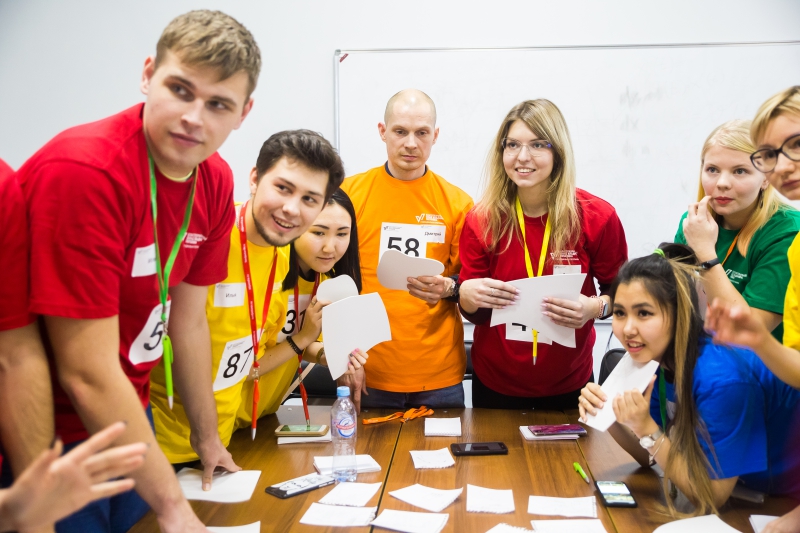
There were seven business games in the second round, plus one case to solve. Each game was with a different team. We were evaluated by experts, who judged us on our behavior and how we build relationships with others. I really liked the task where we had to assemble a puzzle, but with a twist: each of us was given one part of the puzzle but were forbidden from showing it to others. We had one minute to put the pieces together, after twenty minutes allocated for discussions, in which some of us has their hands tied, some couldn’t talk, and some kept their eyes closed. We succeeded in doing the task, but not from the first attempt. There were other tasks too, on conducting debates, thinking creatively, and so on.
I plan on investing the money I won into my education, to boost my skills and participate in conferences.
I would urge all Master’s students to participate in the Potanin scholarship contest. If you want to win, be proactive, ambitious, open to communication and willing to cooperate with your teammates. But first of all, just be true to who you really are. Another great advantage is being able to communicate your thoughts in a clear and persuasive way, and also to control the situation when searching for solutions. The main thing is to not be afraid, but act.
Landysh Fatkhutdinova, a first-year Master’s student, Faculty of Physics and Engineering
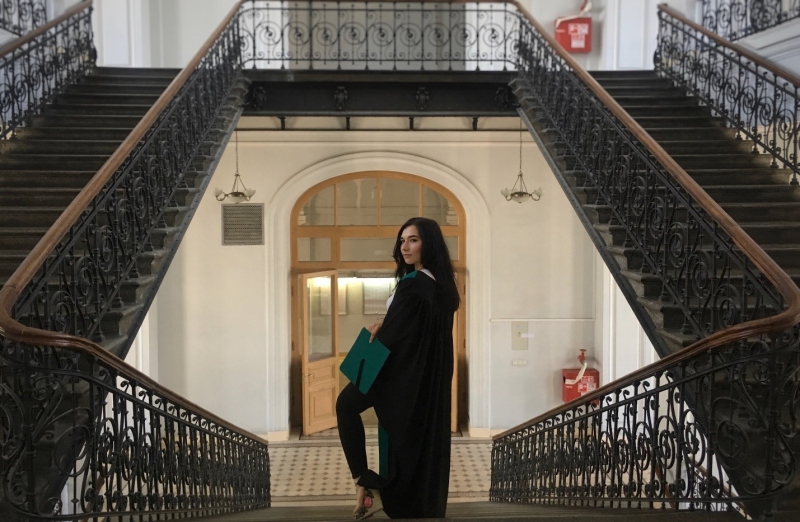
It was by a twist of fate that I decided to partake in this competition. The thing is that last term, I was given an assignment to apply for participation in any competition, and the Vladimir Potanin competition was on my list. I thought that this was a great opportunity to try my hand at competitions and decided to give it a go.
I did my best to fill out the application form as well as possible. One of the tasks was to write an essay on a given topic, which I found extremely entertaining. Mine was about doing research as a Master’s student. I study the synthesis of polymeric capsules, enhanced by iron oxide nanoparticles, as well as their applications in the field of MRI diagnostics.
The second round of the competition focused on leadership and teamwork skills. I really enjoyed the tasks as each of them required participants to think outside the box in a limited amount of time. All tasks had their own requirements and quirks, but there was one general rule: to remember that you’re part of a team that pursues a common goal.
To succeed, leave all your worries behind and strive to voice your thoughts in a comprehensible and confident way. Believe in yourself and don’t miss out on such an amazing opportunity: you’ll be rewarded with valuable experience and have a great time.
